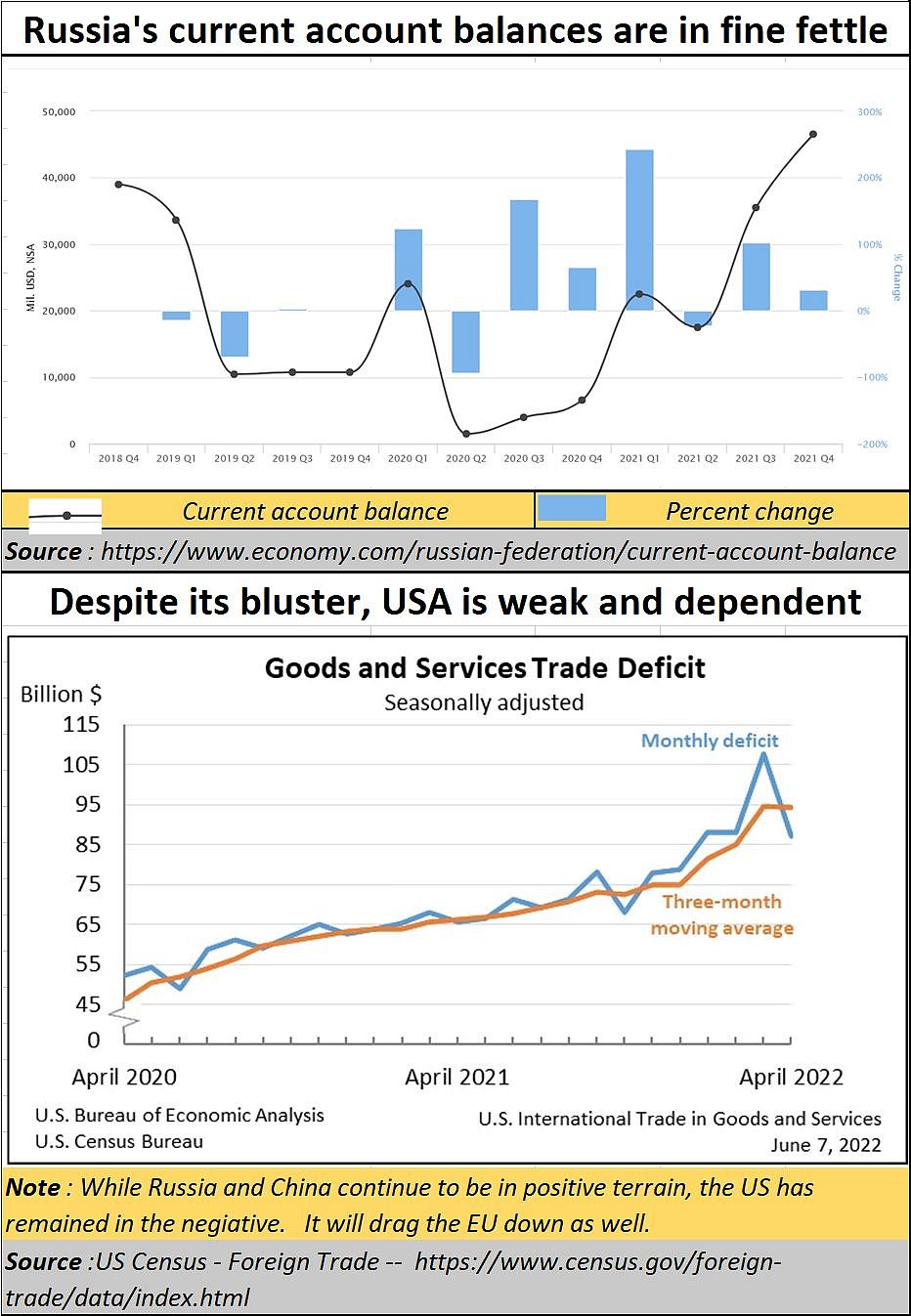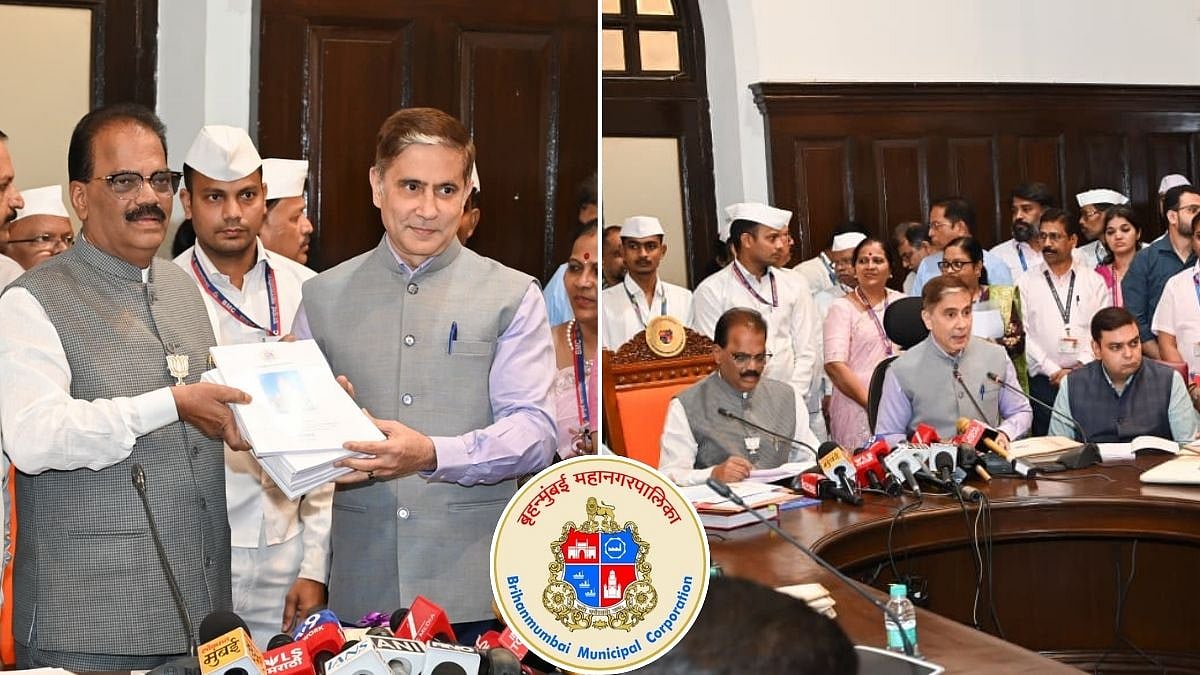In 2009, this author had predicted that India, China and Russia would have to work together. During the past 15 years, China appears to have understood the geopolitical implications of this constellation much better than India has. Some of these realisations have been accelerated by the Russia-NATO-USA-Ukraine conflict.
The US thought it could outsmart, isolate and even weaken Russia. But the brunt of the pain was faced by Germany and the rest of the EU, not Russia.
Energy markets
Look at the way the oil and energy markets have changed. Germany used to be the largest market for Russia. But China has just dwarfed it by purchasing oil and gas from Russia. Russia has also stated that it will reduce gas supplies to the EU in the coming winter months. That will hurt other EU countries and the UK. Plans are afoot to start using coal instead. Germany, the economic engine for the EU has witnessed its trade surplus narrow sharply. There will be more pain to come.
Wealthier Russia
The loss of European markets hasn’t hurt Russia. Russia and China together control most of the key mineral inputs the world requires. Russia’s land mass is three times that of China and the US. Sanctions only made global prices go up. Russia began demanding higher prices -- in roubles -- from the EU. As a result, while Russia’s current account deficit improved smartly, the US continues to limp along with an increasing trend of deficits.
Significantly, Joseph E Stiglitz, Nobel Laureate in economics, wrote that “the US could lose the new cold war”. He goes on to add, “The United States appears to have entered a new cold war with both China and Russia. And US leaders’ portrayal of the confrontation as one between democracy and authoritarianism fails the smell test, especially at a time when the same leaders are actively courting a systematic human-rights abuser like Saudi Arabia. Such hypocrisy suggests that it is at least partly global hegemony, not values, that is really at stake.”
Weakening USA
Worse, there are signs that the US may not be able to fund its ambitious plans to remain leader of the information technology world. As Bloomberg reported on 24 June 2022, “The US promised chipmakers about $52 billion to boost the industry inside the country. Now, it looks like that money might not arrive—a development that’s already threatening to upend manufacturing plans… Right now, some of the biggest companies in the industry … are either planning to build or already building plants in the US, spurred in part by the promise of government incentives.” Some of these plans look less certain now.
Russia has taken the initiative in bringing India closer. Indian retail chains are being invited to Russia – the Walmarts will not be missed – and Russian IT firms are making their way into India.
Interestingly, even Switzerland’s decided to import 3 tonnes of gold from Russia.
What about India?
India has yet to find its feet. As of May 2022, its trade deficit was revised slightly higher to $20.11 billion in April 2022, compared to a preliminary estimate of $20.07 billion and $15.29 billion a year earlier. And its rupee has weakened. It may need Russia’s investments very soon.
China too has begun working with India. At the BRICS summit, Xi Jinping was more candid than he has often been. He said “Some countries attempt to expand military alliances to seek absolute security, stoke bloc-based confrontation by coercing other countries into picking sides and pursue unilateral dominance at the expense of others' rights and interests. If such dangerous trends are allowed to continue, the world will witness even more turbulence and insecurity … It is important that BRICS countries support each other on issues concerning core inter.” In an effort to improve India-China cultural ties, China even celebrated the Yoga Day with much fanfare.
So, what should India do?
India should immediately begin identifying the mines that its people could develop and operate in Russia on a revenue sharing basis, just as ONGC-OVL does in the oil sector. It will be better than promoting Agnipath schemes. That will help India achieve three objectives. It improves relations with Russia. It creates huge numbers of jobs and wealth. Third, it would not leave the Russian mining sector to the Chinese and other Asian countries.
The wheel is spinning rapidly. And India will have to be prepared with more jobs and more exports, and not dream of more Agnipaths.
You can find the online version of this piece at the following link:
The author is consulting editor with FPJ.




